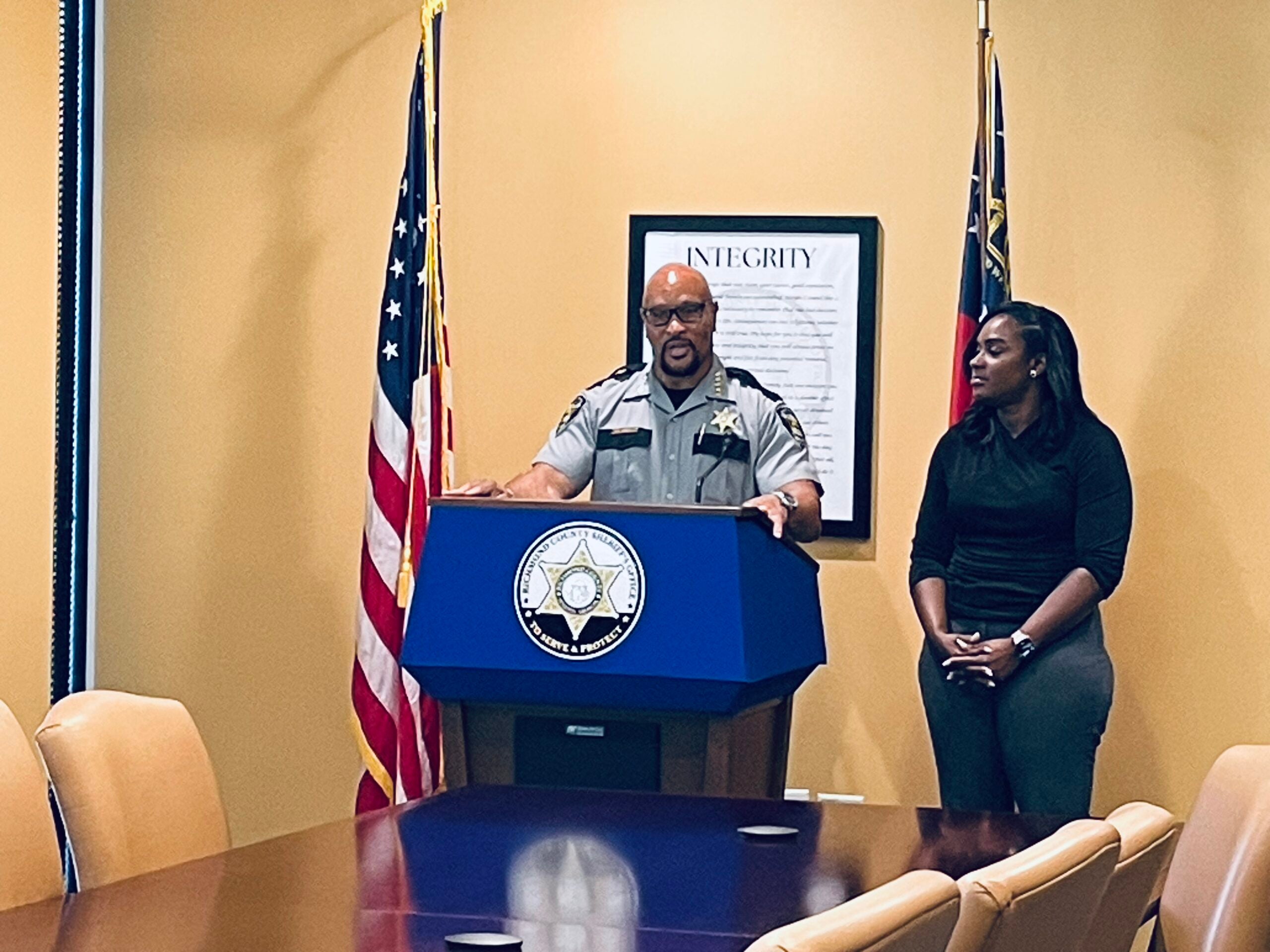No unsupervised minors are allowed to be out and about, in Augusta, after 11 p.m. on weekdays, and after midnight on weekends.
This ordinance has been in the books since 2008, but the Richmond County Sheriff’s Office (RCSO) is proactively enforcing the curfew starting this weekend.
Sheriff Gino Brantley and juvenile court Judge Tianna Bias announced the enforcement initiative, coordinated via partnership between the Sheriff’s Office and the Children in Need of Services (CHINS) office, in a press conference at RCSO headquarters on Walton Way, Friday morning.
“Our goal is not to fill the criminal justice system with young kids that’ve been out with curfew violations,” said Sheriff Brantley. “Our goal is to keep them out of the system for more serious crimes that often come with them being out past curfew, this is a chance to correct their behavior before it becomes a criminal record.”
The ordinance restricts people aged 17 and under from being out on Sunday through Thursday between the hours of 11 p.m. and 5 a.m., and between 12 a.m. and 5 p.m. on Fridays and Saturdays.
Should officers find minors in violation of the curfew ordinance, they will contact the minors’ parents or guardians and transport the children to the Downtown Development Authority (DDA) building at 11th and Greene Streets, where officers will complete appropriate paperwork while waiting for the guardians to arrive and pick them up.
The sheriff’s office arranged this with the DDA to avoid taking juveniles to the RYDC, said Bias, “because we realize that obviously anytime a juvenile encounters a holding facility that resembles a jail or a prison, even if it is designed for minors, that could be a traumatic experience.”
Bias warned that parents of children who have violated the curfew can be charged with contributing to the delinquency of a minor, or abandonment, for refusing to pick up their child from RCSO.
Court dates would be set the Wednesday following the violation, and children would be provided with their own attorneys to represent them.
The first case of curfew violation would not be considered a criminal offense, but repeated incidents could put the in parents in magistrate court, with penalties of up to 60 days in confinement, six months on probation or even fines up to $1,000. Frequent offences can also result in the child being fitted with discreet monitoring devices, at least for a period.
The enforcement initiative was spurred by a rash of incidents involving teens in the past month, said Brantley including, he noted, a “a 17-year-old juvenile who accidentally shot his finger off while trying to hide a firearm during a traffic stop” and “groups of juveniles out at two or three in the morning” apprehended while attempting to break into cars to steal guns.
“These aren’t harmless mistakes,” Brantley said. “These are life changing decisions, and they’re happening when teams are unsupervised and out past curfew.”
Both Brantley and Bias stressed that the goal of the enforcement is not to give juveniles criminal records, but to encourage compliance and cooperation, particularly from parents.
“I’m very confident in saying that this is not a situation where law enforcement officers are waiting around the corner for the clock to strike midnight so that they can catch your children out and about in violation of the curfew,” said Bias.
Brantley reaffirmed this, saying officers will be going about “business as normal,” not actively seeking out juveniles who are out too late. They also noted caveats: this enforcement would not apply to minors who are working, or perhaps at events such as football games, provided that they are supervised by an adult, such as a parent, coach or employer, after hours.
Children found after curfew who are found to be homeless, likewise, will not be considered loitering in violation, but addressed on a case-by-case basis.
“We don’t want to knock on to knock on your door at 2 a.m. because we have your kids in the back seat of our patrol cars because of a choice that they’ve made, because they’re out past curfew,” Brantley said. “There’s nothing good happening for teenagers after 12 midnight, and if they’re home, they’re safe and they’re not at risk.”
Skyler Q. Andrews is a staff reporter covering business for The Augusta Press. Reach him at skyler@theaugustapress.com.











